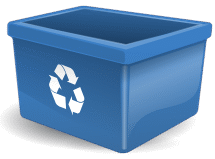What Items Can You Donate to Goodwill (Complete Donation Guidelines)
If you’re asking yourself, “What items can you donate to Goodwill?”, you’re not alone. Many people want to give back, declutter their homes, or simply make sure their used goods help someone else — but they’re unsure what Goodwill will actually accept. This complete donation guide is here to help. In just a few minutes, you’ll know exactly what’s welcome, what to skip, and how to donate in a way that really makes a difference.
Goodwill Welcomes Most Gently Used Household Items
Goodwill is well known for accepting a wide variety of everyday goods. In fact, many of the items sitting unused in your home right now could help fund job training, community support, and eco-friendly recycling programs. You can donate clothes, shoes, books, home decor, small appliances, electronics, toys, tools, and so much more — as long as they’re in good, usable condition.
Goodwill is well known for accepting a wide variety of everyday goods — but that doesn’t mean they take everything. In fact, while many of the items sitting unused in your home could help fund job training, community support, and eco-friendly recycling programs, others might be rejected.
Before donating, it’s smart to learn which Goodwill items to avoid so you don’t accidentally add to their disposal burden. You can still donate clothes, shoes, books, home decor, small appliances, electronics, toys, tools, and so much more — as long as they’re in good, usable condition.
Clothing, Shoes, and Accessories Are Always Needed
One of the most donated — and most needed — categories is clothing. You can donate all kinds of clothing, including jeans, shirts, dresses, jackets, socks (new), and undergarments (only if new and sealed). Shoes, belts, ties, scarves, and handbags are also welcome.
Make sure clothing is clean, free from heavy stains, and not torn or excessively worn. If something is damaged beyond repair, it may be better to recycle it or check if your local Goodwill accepts textiles for scrap.
Home Goods, Kitchenware, and Small Furniture Are Accepted
Goodwill also takes in most small household items. This includes pots, pans, dishes, utensils, vases, and home decor like picture frames or lamps. Gently used small furniture like end tables, chairs, or nightstands are often accepted too — just be sure to check your local Goodwill’s size limitations.
Anything broken, chipped, or with missing parts is best left out of the donation pile.
Books, Toys, and Games Make Great Donations
You can donate used books, puzzles, board games, and children’s toys. These are especially helpful for families shopping on a budget — or for resellers who know the best things to buy at Goodwill Outlets. Just be sure puzzles have all their pieces, games include instructions, and toys are clean and safe (no broken or sharp parts).
Goodwill does not accept recalled toys or items that pose safety hazards, so check labels and recall lists at CPSC.gov if you’re unsure.
Electronics and Small Appliances Are Welcome — With a Catch
You can donate working electronics such as DVD players, radios, lamps, microwaves, and blenders. But make sure they’re clean and functional. If the item is broken, missing cords, or hazardous, it might be rejected.
Many Goodwill locations test electronics before reselling, but it’s still better to donate things in good condition. TVs, refrigerators, and large appliances may be declined, so always confirm with your location before loading up your car.
What Items NOT to Donate to Goodwill
Now that you know what you can donate, let’s talk about what not to give. Goodwill cannot accept:
Donating items that Goodwill can’t accept adds extra burden on staff and creates disposal costs. Always check your local donation guidelines before dropping off.
How to Prepare Your Donations the Right Way
Before you head out, take a little time to prepare your items. Clean them, sort them by category, and pack them in boxes or bags that are easy to carry. Labeling can help too — for example, writing “Men’s Clothes” or “Books” makes sorting easier for Goodwill staff.
Also, keep donation receipts for tax purposes — Goodwill offers these upon request.
Find Your Local Goodwill Donation Center
Not sure where to go? Use the official Goodwill Locator to find the nearest drop-off site and view their hours and accepted items. Some centers even offer drive-through donation lanes or pick-up for large items.
Why Your Donations Matter More Than You Think
Every item you donate to Goodwill supports job training, educational programs, and sustainable recycling. Your old coffee maker, pair of jeans, or stack of books could help someone find a job, learn a new skill, or furnish a home. Donating responsibly not only helps others — it helps the planet too.







